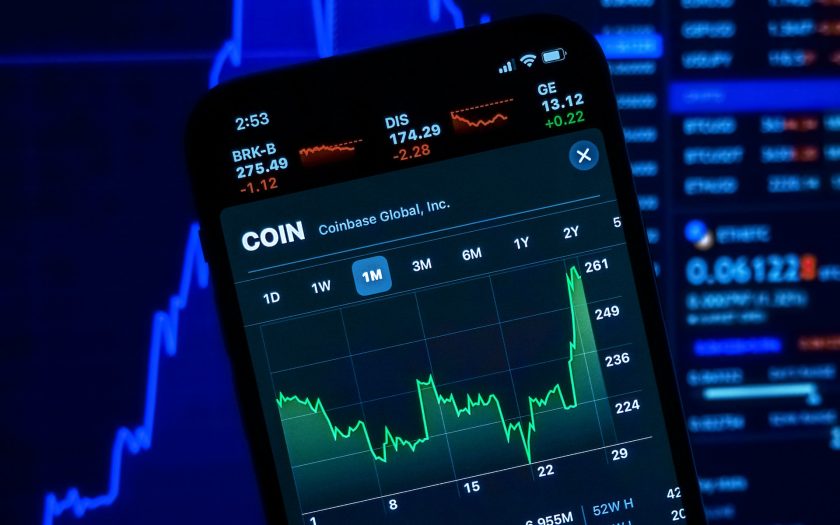
Providing Asian investment advisory for non-sanctioned Eurasian Economic Union investors since 2011.
Legislation shortly to be adopted, will usher in new global payments systems and demolish financial sanctions. Visa and Mastercard could return to Russia as a result: interviews with officials from Russia’s financial services sector.
Russia’s State Duma is set to adopt a bill allowing cross-border transactions with cryptocurrencies in January-February 2023. If this happens, then from Q2 2023 it will become operational. Anatoly Aksakov, Chairman of the Russian State Duma committee on Russia’s financial markets, in an interview with Russia’s Izvestia Economic Newspaper, stated that the circulation of digital currencies should go through the domestic infrastructure, implying that a Russian crypto exchange may appear as early as April-June 2023. Access to this will be not only for companies, but also for individuals, meaning Russian businesses will be able to make international payments in crypto, including for parallel imports. At the same time, financial and economic sanctions structures of the West will not be able to prevent advances in the digital environment.
Aksakov’s Q&A is reproduced in English below:
When will it be possible to adopt a bill on cross-border payments in cryptocurrencies?
I expect that in January-February we will adopt this bill, and from Q2 2023 it will already start working. Now the document is under consideration in the State Duma, discussions have flared up on it. The main criticism is that there is a risk in this way to open a channel for the uncontrolled legal withdrawal of capital from Russia. Therefore, the participants in the discussion propose to prescribe some additional rules in order to remove such a danger, these amendments can be submitted to the second reading.
Will it be within the framework of the bill of the Ministry of Finance on cryptocurrencies or is it a separate bill?
Separate. Introduced by deputies, while supported by the Ministry of Finance. If we cannot agree on the text that the deputies have introduced, then perhaps we will turn to other proposals. But this will lead to a lengthening of the period for consideration of the document. We would like to remove all disagreements when finalizing for the second reading, pass the bill faster and give organizations the opportunity to pay with cryptocurrencies, for example, for parallel imports.
Are there any risks that as soon as such transactions with crypto are legalized, they will immediately try to limit their conduct through sanctions?
There are risks, and sanctions will certainly be imposed, but the digital market is more difficult to crush with sanctions. It is designed in such a way that if restrictions are introduced in one place, other options for economic interaction quickly appear. The miners and cryptocurrency experts I spoke with say that it is impossible to seriously influence such transactions.
Will cross-border crypto transactions be controlled? Will a Russian crypto exchange appear?
Yes, I believe that it is through the Russian infrastructure that the circulation of cryptocurrencies should pass. Moreover, large companies for payments, most likely, will use stablecoins – secured digital currencies. Such coins have already appeared in foreign jurisdictions and are actively used. Their advantage is that fluctuations in the rates of such coins on the market are still minimal.
Stablecoins are issued by specific companies in the West. Again, how risky is this due to possible sanctions?
The circulation of stablecoins takes place in the information system, which, I am sure, the special services are trying to control, but according to the miners and crypto-currencies, they do not have time to track and influence transactions, because everything happens very quickly.
We are interested in creating an information system that is not controlled by the power structures of the West, and we are moving in this direction. We have adopted a law on Digital Financial Assets (DFA), the system has been created, and about 16 assets have already been released in a pilot format. I’m expecting an explosion in Crypto turnover next year. The popularity of “soft currencies” and cryptocurrencies is also growing in this segment.
What projects are currently being considered?
A lot of people apply with a desire to work in this market. I also discussed with the heads of our exchanges the initiative to create coins for gold, which will be backed by ingots in warehouses. As the initiators assure, such tokens will be in demand, including they can be used as a means of international payments.
In addition, we need to adopt a bill on the digital ruble. Soon this will be submitted to the State Duma. We expect that in the first quarter of 2023 the digital ruble will be legalized. In the future, national digital currencies can also be used for settlements between countries.
Returning to the Russian crypto-exchange, is its creation being discussed, for example, on the basis of the St. Petersburg Exchange against the backdrop of the withdrawal of many shares of foreign companies?
I do not rule out that St. Petersburg Exchange will be actively involved in this process. Perhaps a separate infrastructure will appear for the cryptocurrency. Although I expect to permit the use of other regional exchanges.
Against the backdrop of the introduction of Western sanctions against crypto-wallets of Russians, is the possibility of allowing the use of the crypto-exchange not only by companies, but also by individuals being discussed?
Undoubtedly. We are talking about a system that will be available to both legal entities and individuals.
And the crypto-exchange can also appear in the second quarter of 2023?
I think that the Russian crypto exchange could appear in Q2 2023. Such platforms already exist, they only need to be legalized, while the operating rules should be defined.
Regulatory Issues 
Herman Negliad, the Deputy Head of Rosfinmonitoring, the Russian State Financial Monitoring system, discusses Russia’s strict regulation of digital currencies, sanctions schemes for withdrawing money abroad and Meta shares and discusses the return of Visa and Mastercard to Russia.
Earlier you said that the bill on mining should be adopted at the beginning of 2023. What tax does it provide for income from crypto mining?
In the taxation of this area, obviously, general rules will apply, as for all other types of business. I admit that either an analogue of a single tax on imputed income or an income tax will be established as the difference between the organization’s income and expenses. Since transactions are likely to be carried out with stablecoins, the volatility of the rate will not cause problems, it is easy to determine at the time of the transaction.
This tax will not be prohibitive, for example, up to 30%?
No, we are specifically introducing a legal regime that will allow the use of this tool and will stimulate legal activity in this area. Thousands, if not tens of thousands of people are already employed in it, and many of them would like to legalize their business and pay taxes. We must not discourage this process. Income tax assumes a rate of 20%, and a single tax on imputed income – from 7.5 to 15%. And now there are already businesses and individuals who voluntarily pay taxes on transactions with cryptocurrencies. Mining companies are also approaching and wanting to operate in a legal environment.
What rate are they paying now?
I understand that the imputed income tax (7.5-15%) is used. Companies and individuals submit reports to the tax authorities and calculate the amount of tax.
In recent months, the creation of a mechanism for servicing Mir cards in Turkey has been actively discussed . Will it be necessary to change the law for this? What mechanism is being discussed now?
There is no need to change the legislation, the companies themselves must agree on how to work. Turkey is interested in the influx of Russian tourists, however, for this it is necessary to create conditions so that people do not travel with suitcases of cash, but can use a card. For this, a specialized Turkish or joint institute can be used, which will service the Russian “plastic”.
We see that many European countries have already restored trade with Russia to the level of early 2022, before the special operation. I am sure that economic interests will also prevail in the future and Europe will “return”, including creating conditions for the use of Mir cards. Visa and MasterCard will also be asked back or, for example, a new payment system will appear. However, next year the process will begin to actively develop in this direction.
Can we hope that in 2023 Europe will start accepting Russian cards again?
I really hope for common sense and even almost sure of it. Europe loses the most from the imposed restrictions. Of course, Russia is also experiencing difficulties, citizens have problems with payments when traveling abroad. But Russia has already begun to rebuild its economy, for example, to Asia, and Africa. This will lead to Europeans feeling the consequences of the sanctions policy.
Can you give a forecast for 2023 in terms of the ruble exchange rate, inflation rate and key rate?
The rate will be about 73-77 rubles per dollar. A level of up to 80 rubles can be considered optimal, since with an overvalued exchange rate, manufacturers from Russia cannot compete with Chinese, whose goods are much cheaper. And at 73–77, exporters win, and the economy is developing at a good pace. At the same time, importers are not at a loss.
I think inflation will be in the range of 5–9%, depending on different scenarios for the development of the situation. In 2023, we will incur quite serious expenses related to the development of new territories of the Russian Federation. There are military actions going on there, and it will be necessary to restore the infrastructure, houses and so on.
At the same time, the key rate will be within the limits of inflation fluctuations with a certain spread, I hope that its level will begin to gradually decrease from the beginning of next year.
Russia Briefing is written and produced by Dezan Shira & Associates. During these uncertain times and sanctions imposition, our firm assists Russian companies relocate to Asia, and provides financial and sanctions compliance services to foreign companies operating in Russia. We also provide market research and advisory services to foreign exporters interested in Russia as the economy looks to replace Western sourced products. Please contact us at russia@dezshira.com or visit us at www.dezshira.com.
Previous Article
« Russia’s Transport & Logistics Trends For 2023
Next Article
Эта публикация, предназначенная для ознакомления с основами инвестирования в…
Руководство “Ведение бизнеса в Китае 2022” знакомит с основами инвестирования в Китае….
Вьетнам выстоял в трудный 2021 год, пандемия COVID-19 нанесла значительный ущерб его…
В 2021 году Индия успешно перевела свою экономику в режим восстановления, несмотря на…
В этом выпуске журнала АСЕАН Брифинг мы рассматриваем эффективную процедуру…
Dezan Shira & Associates helps businesses establish, maintain, and grow their operations.
Stay Ahead of the curve in Emerging Asia. Our subscription service offers regular regulatory updates,
including the most recent legal, tax and accounting changes that affect your business.
 How To Make Huge Profits In A Short Time With Crypto
How To Make Huge Profits In A Short Time With CryptoGet detailed training system that shows an absolute beginner (without any skill) how to make huge profits in a short time with crypto.
 Crypto + NFT Quick Start Course
Crypto + NFT Quick Start CourseThe #1 course for profit in the Crypto & NFT world - You will discover the secrets that 99% of people don’t know yet





